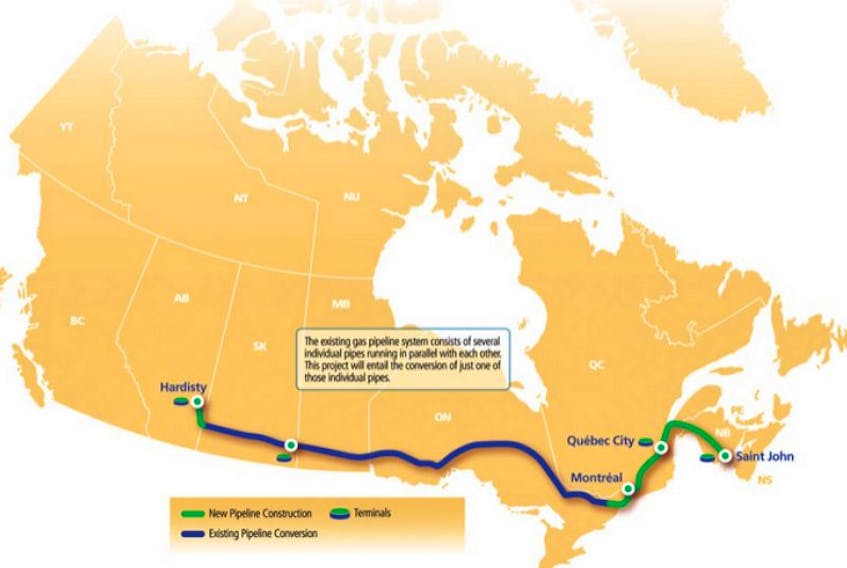The centre’s main concerns about the project were with regard to its impact on climate change and the increased presence of oil tankers in the Bay of Fundy.
Energy East was a proposed 4,500-kilometre pipeline that would have transported approximately 1.1 million barrels of crude oil per day from Alberta and Saskatchewan to the refineries of Eastern Canada and a marine terminal in New Brunswick. TransCanada said the pipeline would have created 14,000 jobs across the country.
Stephen Thomas, the Ecology Action Centre’s energy campaign co-ordinator, said frontline communities across Canada worked for the past five years to stop the pipeline.
Calgary-based TransCanada had its application to the National Energy Board for the $15.7-billion project put on hold recently after the NEB established a more stringent review process.

“For the first time – first time in Canada for any project,” Thomas said, “the National Energy Board chose to include upstream and downstream climate change effects and greenhouse gas emissions, as well as the impact of increased tanker traffic and the risks of a tanker spill in places like the Bay of Fundy and the Gulf of Maine.” These were things the Ecology Action Centre and many other groups had long been calling for, he said.
Not everyone welcomed TransCanada’s decision. The news led to some heated political reaction, with the federal Liberal government coming under fire from Conservative MPs for its energy policies. Saskatchewan Premier Brad Wall also was very critical of Ottawa and New Brunswick Premier Brian Gallant expressed his disappointment over the project’s cancellation.
For Thomas and other pipeline opponents, though, Oct. 5 was a day to celebrate.
“We have proven that projects like this simply aren’t viable if the impacts to indigenous communities, climate change and local environments are reviewed in full,” Thomas said, adding that it’s important to support those fighting similar projects elsewhere.
This past summer Thomas visited several communities to conduct public meetings on the Energy East project, including Yarmouth and Digby. The main concern about the project among people attending those sessions was the prospect of increased tanker traffic.
Meanwhile, responding to TransCanada’s decision not to proceed with the project, Barrie MacGregor, president of the Tusket River Environmental Protection Association, said, “The TREPA board is pleased that the proposed energy east pipeline has been cancelled. There appeared to be no real benefit to Nova Scotia, and an increased danger of a spill in the Bay of Fundy, with the increased tanker traffic, thus endangering the fishing, seaweed and tourism industries in the area.”









